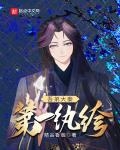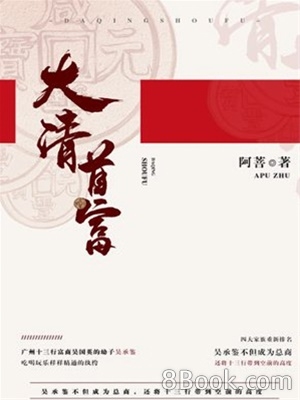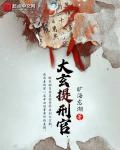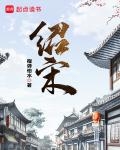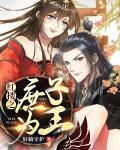Chapter 272 Rich Harvest (Part 2)
Sitting down in front of Master Chang Dao, Huo Chong said, "There are some things I don't understand."
"The herbal tea you treated me to last time was not bad." Priest Changxin expressed his opinion in an irrelevant manner.
Huo Chong was stunned. Why did Master Changxin make such a straightforward request this time? After a few moments of confusion, Huo Chong's thoughts jumped and he immediately felt that his mind was expanding.
Huo Chong asked the guard to go back and get two bottles of the old herbal tea and the latest herbal tea, and then he sorted out his thoughts.
Everyone needs something in return. Huo Chong doesn't seem to have any demands, but the results he expects have exceeded the needs of all his subordinates. Found a country.
In other words, the rewards that Huo Chong's followers expect come from the benefits generated by the country. Huo Chong expects the rewards to come from the country that generates these benefits. Perhaps this is why Huo Chong can't stand some things.
With this idea, Huo Chong just felt very tired. He didn't think about it anymore and just sat there in a daze. Unexpectedly, Master Changxin took the initiative to ask: "Can the telescope you brought last time be made bigger?"
Huo Chong wanted to say that this depends on the technology, but suddenly his thoughts changed and he said jokingly, "Master, if you studied astrophysics, your view of the world would be different. Forcibly changing your cognitive system will only cause the current system to collapse."
"It's my apprentice who is interested in this."
" Oh." Huo Chong thought this answer was normal. Then he heard the Taoist priest continue: "Last time I tried to integrate your astrophysics into my current cognition, and I did find collapse. I have figured out the reason. Do you want to listen?"
Huo Chong rubbed his nose bridge. After recovering from the shock, he felt interested and asked for advice quickly.
The description of Master Chang Dao was not mysterious. He told Huo Chong that the new observation tools only revealed more reality. Just like someone was killed, or many people were killed. It was said that there was a will of heaven.
If there really is God's will, what is above God's will? In other words, what is the basis for God's will?
After incorporating the improvement of observation methods into his cognitive system, Master Chang Xindao reorganized his thoughts and achieved inner harmony again.
"Great!" Huo Chong praised.
"Always be nothing, in order to see its wonders. Always be something, in order to see its boundaries. Mr. Huo is just too eager to use. Nothingness, name, is the beginning of heaven and earth. Something, name, is the mother of all things. If the world is already filled with everything, it will be difficult to move forward."
Huo Chong thought this was a really good idea, but there was a strange gap between this and the problem he wanted to solve. He simply told the Taoist priest about his concern. The Taoist priest did not answer, but asked the Taoist boy to call in a young man in a Taoist robe. He introduced him to Huo Chong: "This is my nephew, Mingyu. He wants to learn how to build a better telescope."
Mingyu immediately bowed, "Wulian Tianzun, I greet Mr. Huo."
Huo Chong looked at Taoist Mingyu. There was nothing special about his appearance, but his eyes were bright and pleasing. If he had such a pair of eyes, he might be able to make an incredible telescope.
"Master Mingyu, right now we are spending all our efforts on making ordinary telescopes, which are used to equip the troops. If Master Mingyu wants to make a better telescope, he has to learn the manufacturing technology and make it himself. Do you think it's okay?"
"Yes!" Taoist Mingyu agreed readily, which surprised Huo Chong a little.
At this point, the guard had already brought the herbal tea. Huo Chong didn't say anything, left both packets to Master Changxin, and stood up to say goodbye.
Master Changxin walked him to the door and said before parting: "Mr. Huo, you can make a room by cutting out doors and windows. When there is nothing, there is a room. So what is there is a benefit, and what is not there is a use. Since the countryside can no longer accommodate those people, why not let them come to the city. There is plenty of space around Mr. Huo."
Huo Chong was stunned for a moment, but he understood the Taoist's advice. After thanking him, he hurried back to the government office.
The solution given by the Taoist priest was really good, but Huo Chong was not excited. A master may not be able to give a solution to a problem, but the master originally studied the ideas for solving problems, not solving specific problems.
Huo Chong felt relieved and immediately convened a high-level meeting. After hearing Huo Chong's statement that he was going to start building a city, everyone, including Qian Qing, was confused. Only Gao Pang tried his best to understand what was going on. "The governor wants to build a city?"
Seeing that Gao Pang asked a decent question again, Huo Chong was really disappointed. If possible, Huo Chong really expected his other subordinates to ask such questions.
This was not the time for inspiration, Huo Chong directly described the result, "It's not about building a city, but about building a city. A city is a way of life, not a place to live..."
Huo Chong did not waste time, but simply explained the difference between cities and rural areas in the modern sense, and then told everyone, "We will start preparations this year, and construction will begin next year at the latest."
Looking at the confused crowd, Huo Chong chose a topic that everyone could understand, "In the future, everyone will move their families to the city. Since I have described the city so well, if no one comes to live here, wouldn't that be deceiving everyone?"
After hearing this, the senior executives finally formed an intuitive feeling, and the atmosphere in the meeting room began to liven up.
Gao Pang was not relaxed. He certainly knew that cities were habitable and life was possible. However, this kind of life was definitely not what Huo Chong described as "the city is a kind of life".
What is life like in the city? Since Huo Chong said so, Gao Pang was quite looking forward to it.
For a moment, Gao Pang thought of the cities in Jiangnan and the capital where he had gone to participate in the imperial examination. Those were huge cities with large populations, and life was not easy. If it were not for the teachers in those cities, Gao Pang would not think that city life was any good.
Gao Pang thought of his teacher, but his teacher did not want to think of Gao Pang. However, in August of the first year of Kunlong, the sweet-scented osmanthus in Jiangnan had begun to bloom, and the fragrance lingered in Chen Mingtai's house. All the guys who came to visit had their children going to participate in the imperial examinations in the capital.
Unlike last year's special examination which mainly recruited Manchu Jinshi, this year's is a formal imperial examination. People from all walks of life are looking forward to their children passing the examination and becoming Jinshi to bring honor to the family.
Seeing that Chen Mingtai didn't say anything, everyone couldn't help but ask the question everyone was looking forward to, "Mr. Chen, I wonder what the exam questions will be this time, and which student Mr. Chen likes?"
Chen Mingtai still didn't say anything. It was obvious that he was too concerned. If Chen Mingtai knew what the test questions were, it would be considered cheating in the imperial examination and he would be beheaded. As for which student had a chance, Chen Mingtai was not interested in commenting.
Gao Pang has become a thorn in Chen Mingtai's side, but in comparison, the articles written by this group of students are not as good as Gao Pang's.
Although trying to establish an order based on the teachings of Confucius and Mencius itself falls into the category of rebellion, this mistake, so huge that it can almost be called rebellion, is a mistake of a very high level.
Gao Pang was wrong because he wanted the imperial court to run the imperial examination according to his ideas, and even hoped that the imperial court would listen to him. Such an arrogant state of mind would inevitably lead to trouble. Once trouble occurred, the family would be confiscated and the relatives and friends would be implicated.
In addition, Gao Pang was indeed far superior to ordinary scholars in terms of knowledge and thinking. At least through his adventures, Gao Pang was able to completely conceal his thoughts and adopt the thinking required by the examiners to deal with the imperial examinations.
Seeing that Chen Mingtai still didn't say anything, everyone couldn't hold it in any longer and could only ask more directly: "Mr. Chen, is it possible that the candidates who took the exam this time were not as good as Mr. Chen's judgment?"
Chen Mingtai had no choice but to respond: "Everyone, whether you can pass the imperial examination depends on your knowledge and your fate. The questions you choose are fate. The imperial examination has been going on for hundreds of years, and all the questions that can be tested have been read to death. We can only come up with all kinds of creative questions. If the questions are a little more formal, they will be regarded as deliberately going off topic. It depends on the examiner. It's useless for us to guess blindly."
"Mr. Chen, Brother Gao Shi died young, but how could he have become the top scholar?"
"It's not him who got the top spot! It's him who was chosen as the top spot!" Chen Mingtai explained unhappily. After saying that, Chen Mingtai became even angrier. If Gao Pang was classified as abominable, then these guys in front of him would be classified as shameful.
They don't even bother with the most basic imperial examinations, and just think about how to pass them. Even if they pass, they won't really achieve anything.
Everyone saw that Chen Mingtai was angry, but they didn't know why Chen Mingtai was angry. They could only change the subject, "Mr. Chen, it would be great if Shandong Huo Chong could calm down."
The person who said this was probably just making something to say, and the people who heard this were frightened and quickly told him to shut up. But everyone knew that this was actually true. If the emperor in the capital was killed, then who else in the capital would be safe?
Moreover, the news in the capital was clear, and Yongzheng was not the only one who suffered. Huo Chong not only burned down the Old Summer Palace after entering the capital, but also slaughtered everyone in the Old Summer Palace. His subordinates killed people in the capital, and the officials of the six ministries on Qipan Street were brutally slaughtered.
There is a legend that Huo Chong's men drove all the officials of the Ministry of Revenue and the Ministry of Personnel to the warehouses of the two ministries and then set fire to them. Hundreds of officials and the warehouses of the two ministries were burned to ashes.
If Huo Chong did this again, God knows whether those candidates taking the imperial examinations would be slaughtered.
Chen Mingtai didn't want to talk nonsense with this bunch of guys, so he immediately announced that he was going to disband.
However, as the saying goes, what you fear will come true. Huo Chong had no intention of letting the Qing Dynasty hold the imperial examination comfortably.
The provincial examination was held in the capital and provincial capitals every three years, usually in the year of Zi, Mao, Wu, and You. The examination period was usually in August in autumn, so it was also called "Autumn Examination". The chief and deputy examiners were usually Hanlin scholars and Jinshi graduates appointed by the emperor.
There is a formal examination hall for the provincial examination, called Gongyuan. There are rows of numbered rooms in Gongyuan for candidates to stay and answer questions. The results of the provincial examination are announced in September, when the sweet osmanthus flowers are in bloom, so it is also called the "Guibang". Those who pass the provincial examination are called Juren, and the first place is called Jieyuan. Those who pass the provincial examination are called Yibang. Those who pass the Juren examination can not only participate in the national examination, but also have the qualifications to become an official even if they fail the joint examination. The joint examination and the palace examination are the highest level examinations, among which the joint examination is a decisive examination, while the palace examination only determines the ranking, and there is no question of being dismissed. The joint examination is hosted by the Ministry of Rites and held in the Gongyuan in the capital. It is usually held in the second year of the provincial examination, that is, the years of Chou, Chen, Wei, and Xu. The examination period is mostly in February and March in spring, so the joint examination is also called "Liwei" and "Chunwei".
The provincial examination was being held at this time. In addition to the provincial examination, those candidates who had decided to take the imperial examination had already gone to the capital and stayed in various hotels or B&Bs.
Since the capital was also an important location for the provincial examinations, Huo Chong asked who was willing to launch a feint attack on the capital.
When Hu Yue heard this, he immediately stood up and said, "Governor, I want to go."
"You want to be a division commander, right?" Wang Weichang, who had been confronted by Hu Yue, said sarcastically in a low voice.
Hu Yue did not refute, but said loudly to Wang Weichang: "Yes, I want to be a division commander. Commander-in-chief, let me order three regiments to feint and attack, which will surely scare the Qing Dynasty to death."
Three regiments make up a division. Seeing Hu Yue taking advantage of the situation so carelessly, everyone burst into laughter.
Huo Chong didn't think there was anything wrong, but he didn't say anything. Huo Chong was a little surprised that none of the other regiment commanders and battalion commanders said anything. Hu Yue also noticed this and continued to ask for permission: "Commander-in-chief, no one else wants to go, let me go."
Chief of Staff Lei Hu couldn't help but speak up, "Governor, Hu Yue shouldn't fight his way into the capital."
Huo Chong was amused. But with Hu Yue's personality, he might dare to do it. The Han army had 500 soldiers in a battalion, and the last time they entered the capital, they had less than three battalions. Hu Yue commanded three regiments and nine battalions. If you say that Hu Yue only uses his troops for small-scale victories, no one will believe it.
"Governor, please let me go." Hu Yue continued to request.
Huo Chong saw that no one else said anything, and he knew what everyone else was thinking. At the moment, the army hoped to annihilate the Qing Dynasty's heavy troops in Jining, and everyone knew that the Qing Dynasty's grain transport relied on the canal. The battle of Jining before the autumn harvest did not produce any results, nor did it cause much impact.
But now it is different. After the autumn harvest, the Qing Dynasty relied on the canal for grain transport. Cutting off the canal at this time would make life very difficult for the Qing Dynasty. If another group of troops marched towards the capital, the Qing Dynasty would be scared to death.
Still hesitating, Qian Qing finally spoke, "Sir, besides fighting, do you have any other ideas?"
As expected of Qian Qing, he already understood Huo Chong's greed. Huo Chong smiled and said, "Of course I have an idea, and it's very interesting. Once a war breaks out, the impact will be very great. I am determined to take everything I want..."
On August 15, the first year of the reign of Emperor Qianlong, the capital received news that a Han army had suddenly crossed the Daqing River and began to march northward. Judging from the direction of their movement, it was obvious that they were heading straight for the capital.
The capital was immediately shaken by the news. After Yongzheng was killed, the capital had already mobilized a large number of troops. The Qing troops in northern Zhili and other places were already in a position to protect the capital, and now they were all mobilized and marched towards the capital.
The gates of the capital were locked and the army was on guard. Even if there was no attack, the scholars participating in the provincial examinations would soon know something was wrong just by looking at the tense situation. The news spread like wildfire in the capital, scaring the scholars participating in the provincial examinations. Every household in the capital was locked up, and everyone was in danger.
In a guest room in the capital, Lei Shen, a scholar from Hebei, felt the copper coins in his pocket, walked to the innkeeper, and asked with a smile: "Boss, do you have any more sesame cakes today?"
"The sesame cakes are gone." The boss sighed, "Also, the price of sesame cakes has gone up. It was four cents yesterday, and now it's five cents."
When Lei Shen heard this, he couldn't help but yell, "Why is it going up again? Wasn't it still two cents a piece a few days ago?"
"We've sold pancakes for one cent a piece! Two cents is too expensive!" the boss replied angrily.
Lei Shen knew that it was useless to get angry at his boss. If he really annoyed his boss, he might be fired directly.
Lei Shen could only put away his anger and said with a smile: "Boss, then give me a bowl of noodles."
"The noodles are too expensive! Brother, why don't you go to the teahouse two blocks away? Maybe the rotten meat noodles there can be sold at a good price."
Lei Kun came out reluctantly and went to Yutai Teahouse two blocks away with his fellow scholar who was taking the provincial examination. The rotten meat noodles in this teahouse were really delicious.
The so-called rotten meat noodles are also called "Erhunpu". They are sold in rice stalls and teahouses.
All noodles are the same, it depends on what kind of "broth" is used. The so-called rotten meat noodles are noodles with pork scraps as the "broth". As the saying goes: "Who cares if it's a donkey or a horse, after eating rotten meat noodles, you can play the cymbals." "Playing the cymbals" means talking about everything, gossiping, chatting, and chatting.
There are 18 kinds of stews popular in Beijing: meat fried sauce, vegetarian fried sauce (such as fried dough sticks, eggplant, etc.), boiled meat, salty soup, stinky tofu, poor people's joy, three-in-one oil, pepper oil, spare ribs, shredded chicken, Chinese toon, sesame paste, roasted mutton soup, mixed vegetables, salt water, broth, rotten meat, and meat slice stew. Today, except for meat fried sauce and sesame paste, most stews have disappeared.
When we arrived at Yutai Teahouse, we saw that it was crowded. The waiters kept bringing out noodles, and the shopkeeper sighed to the diners while collecting money, "Hey, sir, in a few days, the price of our rotten meat noodles will increase. The price of noodles is going to go up to the sky. If we sell them at this price, we will lose a lot of money!"
Lei Kun didn't say much and quickly bought a bowl. When it was served, the amount of noodles seemed to be less. The meat in the topping was still the same size, but the amount seemed to be less.
After taking a bite, the taste was still that kind of wonderful mixed feeling. Rotten meat includes not only pork, but also beef, mutton, donkey meat, dog meat, etc. Rotten meat is not good meat in pieces, but some leftovers. Therefore, the price is very cheap and it is a "happy pill" for the poor to satisfy their cravings.
At this time, on the Han army's secret transportation line, batches of rabbit meat were packed in wooden barrels and headed towards the capital.
In Shandong, rabbit meat is no longer a special food. Although rabbit meat has never been a special food, meat is still meat after all, and it takes effort to kill a rabbit. Therefore, the price is more expensive than noodles.
However, after large-scale breeding, the price of rabbit meat dropped. But these rabbit meats can be sold at a considerable price when transported to the capital. In order to make money, everyone worked hard.

